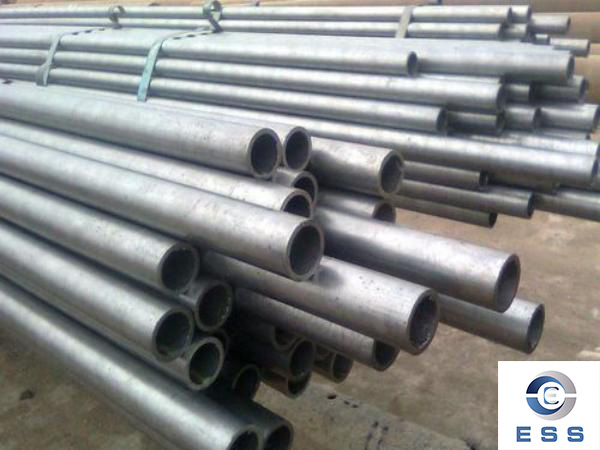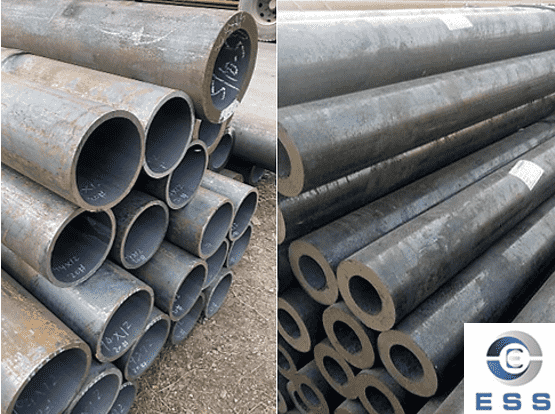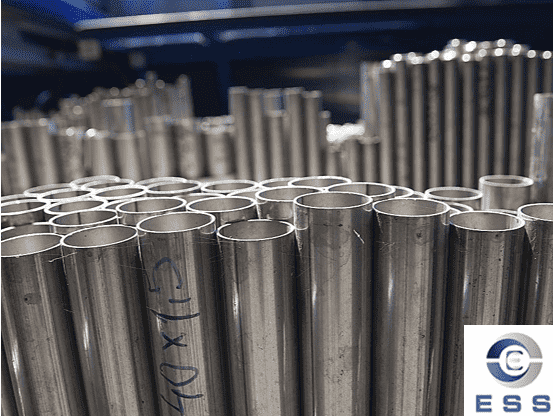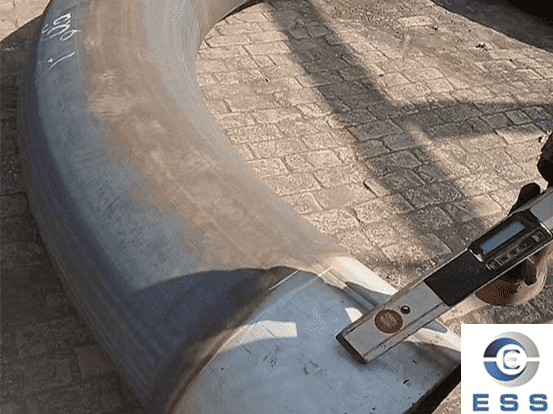Causes and preventive measures for hydraulic tubes burst

Hydraulic systems are widely used in industrial fields, such as engineering machinery, aerospace, petrochemical and other industries. As an important part of the hydraulic system, the reliability of
seamless pipe is directly related to the stability and safety of the hydraulic system. However, hydraulic tubes burst occur from time to time, seriously affecting the normal operation of the hydraulic system. This article will explore the causes of hydraulic tubes burst and propose corresponding preventive measures.
Internal causes
1.Hydraulic tubes quality problems
The material quality, manufacturing process, dimensional accuracy, etc. of hydraulic oil pipes will affect their service life and pressure resistance. If the material strength is insufficient, the dimensional deviation is too large, and the welding is not firm, it may cause the hydraulic tube to burst during use.
2.Hydraulic oil problems
The quality of hydraulic oil has an important impact on the service life of hydraulic tubes. If the hydraulic oil is of poor quality and contains too much impurities, moisture or air, it will corrode the hydraulic tube, accelerate its aging, and cause bursts.
(1) Mixing hydraulic oils of different grades
For example, excavators generally use 46# hydraulic oil by default when they leave the factory. If 68# hydraulic oil commonly found in spare parts stores is added during use, the hydraulic oil will become unstable and damage components. High-viscosity hydraulic oil has poor fluidity, which will cause high pressure in the hydraulic system and easily cause pipeline leakage.
(2) Excessive hydraulic oil temperature
If your machine hydraulic system is hot, it will also affect the sealing of hydraulic components and cause pipe leakage; in addition, high temperature will cause hydraulic components to expand, causing the valve core and valve body to get stuck, resulting in local high temperature and pipe burst.
3.High-pressure shock
During the operation of the hydraulic system, excessive pressure will cause the hydraulic tube to overload. If it is under high pressure for a long time, it will damage the wall of the tubing and cause pipe burst; frequent fluctuations in oil pressure or instantaneous high-pressure shocks may also cause the oil pipe to burst.
4.Installation problems
During the installation process, if the tubing is subjected to excessive bending radius, twisting, extrusion and other stresses, or if the tubing connection part is rusted or loose, leakage will occur during the operation of the hydraulic system, and pressure will continue to accumulate, eventually causing the tubing to burst.
5.Improper maintenance
The daily maintenance and care of the hydraulic system has a great impact on the life of the tubing. If the filter screen is not cleaned and the seal is not replaced in time, the oil pressure will be unstable and the risk of oil pipe bursting will increase; long-term use will cause the hydraulic oil pipe to age and become brittle, and even crack and break, which will cause the tubing to burst.
External reasons
1.External object attack
During the working process, if the hydraulic oil pipe is hit by mechanical equipment or foreign objects, it will cause mechanical damage, wire structure breakage, etc., causing the tube to burst.
2.The ambient temperature is too high
Under high temperature, the viscosity of the hydraulic oil becomes thinner and the fluidity is enhanced, which will increase the flow rate of the oil inside the hydraulic oil pipe and cause the tube to burst.
3.Bad operating habits
If the operator operates roughly during operation, the huge impact load will generate instantaneous impact pressure in the hydraulic system. The impact pressure will cause the high-pressure oil pipe joint and the hose to fail prematurely, leak or burst, greatly shortening the service life of the hydraulic tube. In addition, rough operation will also affect the durability of other components and cause frequent mechanical failures. Therefore, the usual operating actions must be gentle, and high-intensity and high-risk actions should not be performed.
4.Abnormal vibration of hydraulic tubes
Gear pumps and plunger pumps have oil pulsation when working, which will cause high-frequency vibration in the hydraulic pipe, and this high-frequency vibration cannot be completely eliminated. Long-term abnormal vibration will cause fatigue wear of the hydraulic pipe. Therefore, the pipe clamps and protective sleeves of the hydraulic pipes should be checked frequently. Once the pipe clamps are loose, the hydraulic pipes will be worn and even worn through.
Prevention methods
1.Choose high-quality hydraulic oil pipes
Hydraulic oil pipes with good material quality, advanced manufacturing processes and strict quality control should be selected to ensure that they have sufficient strength and pressure resistance.
2.Choose suitable hydraulic oil
According to the specific requirements of the hydraulic system, select hydraulic oil that meets the specifications and ensure that it has high cleanliness and good anti-oxidation performance.
3.Reduce high-pressure shock
By optimizing the design of the hydraulic system, reasonably adjusting the internal pressure of the hydraulic system, reducing the frequent fluctuations of oil pressure and instantaneous high-pressure shocks, the damage caused by the pressure in the hydraulic oil pipe can be reduced, thereby reducing the risk of damage to the oil pipe.
4.Proper installation of oil pipes
During the installation process, ensure that the oil pipes are subjected to appropriate stress to prevent them from being subjected to external forces, and avoid excessive bending radius, twisting, extrusion, etc. that may cause the pipes to twist or deform; at the same time, ensure that the connection parts are tightened to prevent loosening and pressure leakage.
5. Strengthen daily maintenance
(1) Regularly maintain the hydraulic system, including cleaning the filter, replacing seals, etc., to maintain the oil pressure stable and extend the service life of the oil pipes;
(2) Keep clean: Prevent the hydraulic oil pipes from contacting air, moisture, and impurities, regularly clean the outer surface of the hydraulic oil pipes to remove dirt and impurities, and apply appropriate rust inhibitors to prevent corrosion and rust of the hydraulic oil pipes;
(3) Strengthen the inspection and maintenance of the hydraulic oil pipe joints, regularly check whether the hydraulic oil pipe joints are rusted, loose, leaking, etc., and take corresponding measures in time;
(4) Install protective sleeves around the hydraulic oil pipes to prevent damage to the hydraulic oil pipes by the external environment.
6. Establish a monitoring system
By establishing a hydraulic system monitoring system, real-time monitoring of oil pressure, temperature and other parameters, timely detection of abnormal conditions and taking corresponding measures to prevent the oil pipe from bursting during operation.
7.Train operators
Provide professional training for hydraulic system operators to ensure that they understand the operating principles and operating procedures of the hydraulic system, can correctly operate and maintain the hydraulic system, and reduce the oil pipe bursting accidents caused by improper operation.
8.Regular inspection and replacement
According to factors such as the material and service life of the hydraulic oil pipe, formulate a reasonable inspection and replacement plan. Replace the oil pipe that has reached its service life in time, and repair or replace the oil pipe with slight wear or corrosion to ensure the normal operation of the hydraulic system.
9.Apply advanced technology
Actively introduce and apply advanced hydraulic technology and materials to improve the performance and service life of hydraulic oil pipes. For example, adopt high-strength materials, optimize the oil pipe structure design and other measures to improve the pressure resistance and fatigue resistance of the oil pipe.
10.Establish and improve the management system
Formulate a complete hydraulic system management system and clarify the responsibilities and requirements of each link. Strengthen the supervision of the quality control and use management of hydraulic oil pipes to ensure the safe and stable operation of the hydraulic system.
Conclusion
The explosion of hydraulic tubes not only affects the normal operation of the hydraulic system, but may also cause safety accidents. Therefore, it is of great significance to conduct in-depth analysis of the causes of hydraulic tube explosions and take corresponding preventive measures. By selecting high-quality hydraulic tubes, reasonably installing and maintaining hydraulic systems, and strengthening daily monitoring, the risk of hydraulic tube explosions can be effectively reduced and the stable operation of the hydraulic system can be guaranteed. At the same time, establishing and improving relevant management systems and training mechanisms will also help improve the professional quality and safety awareness of operators, and provide strong guarantees for preventing hydraulic tubes explosions.













 Eastern Steel Manufacturing Co.,Ltd not only improve product production and sales services, but also provide additional value-added services. As long as you need, we can complete your specific needs together.
Eastern Steel Manufacturing Co.,Ltd not only improve product production and sales services, but also provide additional value-added services. As long as you need, we can complete your specific needs together.










